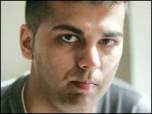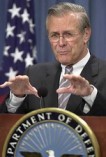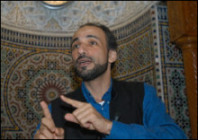The western state of North-Rhine Westphalia, Germany’s most populous, has banned teachers in public schools from wearing hijab.
The state’s regional parliament, where the conservative Christian Democrats hold a majority, adopted a law banning hijab on Wednesday, May 31. The law was voted against by the Greens and the Social Democrats. North-Rhine Westphalia became the eighth of Germany’s 16 federal states to ban hijab in public schools.
The Muslim minority blasted the hijab school ban as unconstitutional. The Central Council of Muslims in Germany said the new law does not treat all religions as equal, banning only the hijab and not the Christian cross or other religious symbols.
The constitutional court, Germany’s highest tribunal, ruled in July 2003 against a decision by the Baden-Wuerttemberg state to forbid a Muslim teacher from wearing hijab in the classroom. But it said Germany’s 16 states could issue new legislations to ban the Muslim headscarf if they believe it would influence children.
A number of states, including Mecklenburg-Vorpommern, Saxony, Saxony-Anhalt and Thuringia, still allow hijab at schools. Others, including Baden-Wurttemberg, Saarland and Lower Saxony, ban teaching staff in state schools from wearing symbols that express religious, political, or ideological affiliation, including hijab.


 A Muslim student had to pay extra for security checks when applying for a visa to visit the United States, because his name was Mohammed. Mohammed Umar Haleem Khan, 22, was told by US Embassy officials that “a lot of bad people” shared his name. The Manchester Metropolitan University student had to pay an extra $80 (£45) to have his fingerprints checked against a US terror suspect database.
A Muslim student had to pay extra for security checks when applying for a visa to visit the United States, because his name was Mohammed. Mohammed Umar Haleem Khan, 22, was told by US Embassy officials that “a lot of bad people” shared his name. The Manchester Metropolitan University student had to pay an extra $80 (£45) to have his fingerprints checked against a US terror suspect database. Donald Rumsfeld was directly linked to prisoner abuse for the first time yesterday, when it emerged he had been “personally involved” in a Guantánamo Bay interrogation found by military investigators to have been “degrading and abusive”.
Donald Rumsfeld was directly linked to prisoner abuse for the first time yesterday, when it emerged he had been “personally involved” in a Guantánamo Bay interrogation found by military investigators to have been “degrading and abusive”. US government lawyers clarified some mysteries and deepened others in the case of Tariq Ramadan, a Swiss Muslim scholar and leading European theologian of Islam who has been barred by the Bush administration from traveling to the United States since July 2004.
US government lawyers clarified some mysteries and deepened others in the case of Tariq Ramadan, a Swiss Muslim scholar and leading European theologian of Islam who has been barred by the Bush administration from traveling to the United States since July 2004.